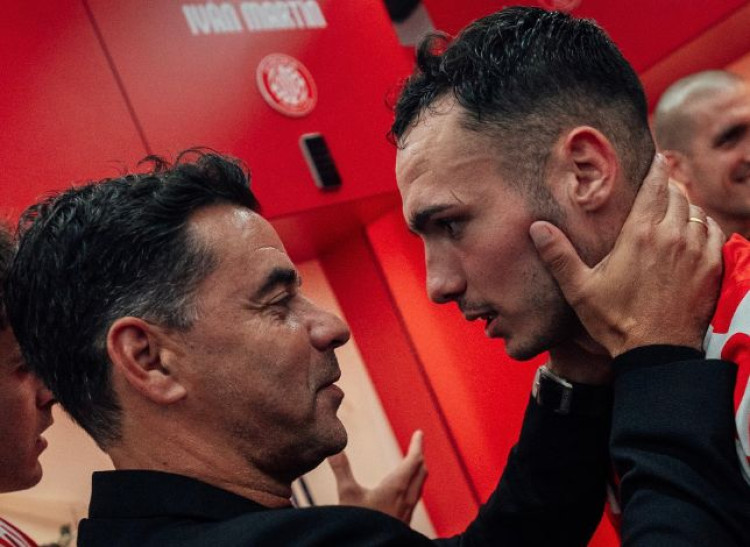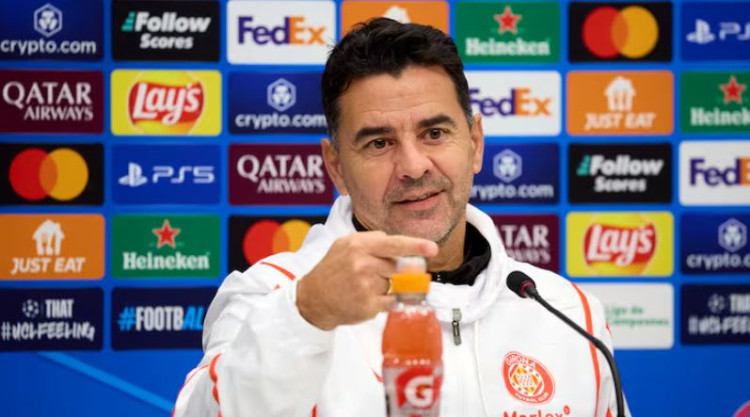
It was the miracle story in Europe last season. Tiny Girona, a club playing just its fourth season in Spain’s division, with a stadium capable of holding a little over 10,000 fans, would be in the Champions League. For much of the race, they were Real Madrid’s closest challengers. Finishing third, sandwiched between Barcelona and Atletico Madrid, Girona are the first side to separate the big three since Diego Simeone’s first full season in the Spanish capital.
Their two thumpings of Barcelona, putting four goals past their loud Catalan neighbours, were argument that Girona were more than a match for anyone in the league beyond Real Madrid. This season they would receive ample reward: a place in Europe’s premier competition, with glamour ties against Paris Saint-Germain, Arsenal, Liverpool and AC Milan across the league phase.
But as the attention to Michel Sanchez’s miracle has faded, so has their form. Starting off well in contention for the European places, it seemed likely they would challenge again to make it two seasons in a row on the continent, especially once the ‘distraction’ of their current European campaign was in the rearview mirror.

Yet for anyone interested in crypto betting, or bitcoin betting for that matter, you are more likely to see money coming in for their relegation than qualification now. Crypto sports betting is on the rise as people seek alternatives to the usual suspects, and pursue more decentralized sports betting options, and Spain’s relegation race is no doubt seeing plenty of attention for those who are regulars on the matter.
Girona currently sit five points clear of the drop, but together with Osasuna are arguably in the worst form of any of the contenders. Although Real Valladolid are a guarantee at this point, Alaves, Leganes and Espanyol are picking up points, and Girona have just three points from their last eight games. If they do similar in their final septet, they will likely find themselves in trouble.
Should Girona go down, it will in some sense forever tinge their Champions League season, potentially a unique story in their history. Dropping into Segunda would lurch the Catalan minnows from a strong and growing club into uncertainty again. If they survive this run, and this battle, then with vast increases in income, Girona can for the first time look to establish themselves in La Liga as a regular in the division and all the benefits that come with that. The Champions League might be the spotlight, but this will be real pressure for Michel.